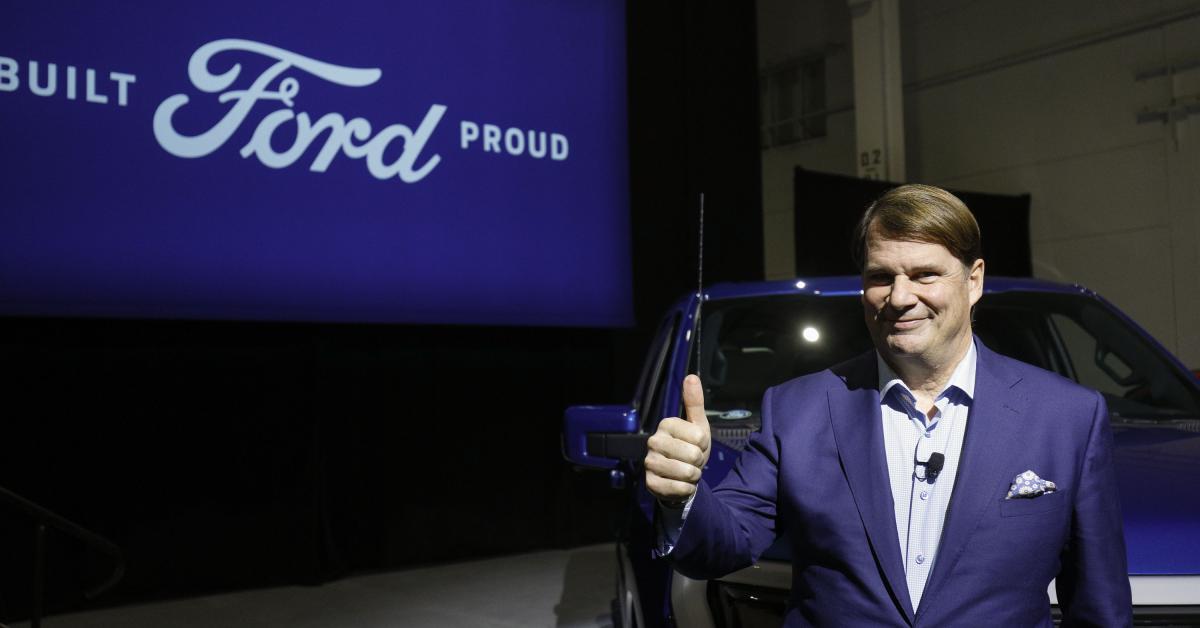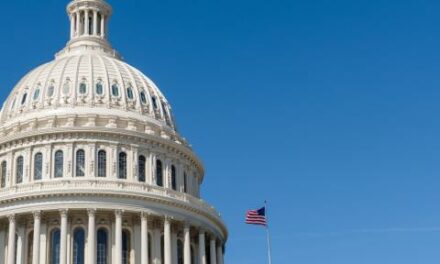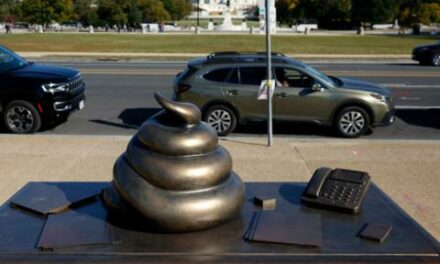We support our Publishers and Content Creators. You can view this story on their website by CLICKING HERE.

The Biden-Harris administration received more bad news this week regarding its goal of getting most drivers in the U.S. to switch to electric vehicles. Ford Motor Company on Monday posted a loss of $1.224 billion on its electric vehicle lines. That brings the company’s loss on EVs in the first nine months of this year to $3.7 billion.
Unlike other major automakers, Ford separates the financials on its EV business into a separate category called Model E.
Energy watchdog Robert Bryce points out on his Substack that the company’s losses on Model E this year are equal to its gross profit on its internal combustion engine business, Ford Blue. In 2023, Ford lost $4.7 billion on its EV sales, and in 2022, it lost $2.2 billion.
“The third-quarter numbers simply show, yet again, that Ford’s leadership has made a colossal blunder,” Bryce writes. He estimates the company lost over $58,000 on each EV it sold in the third quarter.
Herd mentality
Company executives sometimes make bad decisions, such as when Hertz decided that it would transition a large chunk of its rental fleet over to electric. The plan failed spectacularly in the face of depreciation and repair costs, which cost the company an estimated $1 billion. In March, Hertz CEO Stephen Sherr, who set the company on its EV course, stepped down. Other rental companies haven’t reported making similar mistakes.
With automakers going electric, however, it wasn’t just a single company. Across the board, many automakers envisioned that consumers would clamor to buy EVs, and all the automakers had to do was build them. Over the past year, however, many of them pulled back on previously ambitious plans. It’s likely, like Ford, they are not seeing good returns on their EV businesses either.
Aaron Turpen, an automotive journalist who has test driven and written about many EV models, told Just the News there’s a number of reasons why so many automakers made poor bets on their electric vehicle plans.
First, there was a lot of political pressure in the early part of the administration. While U.S. carmakers were on board with the vision, Toyota CEO Akio Toyoda disputed the narrative. He said the company would pursue a multi-pronged effort including gas-powered cars, hybrids and hydrogen vehicles.
“And he got lambasted for that,” Turpen said. “Now it turns out, he was right.”
Another factor driving the automakers’ EV craze, Turpen suspects, is promises from state governments and the federal government, as well as private industry, that charging infrastructure would see much wider buildouts.
The administration dropped $7.5 billion from the Bipartisan Infrastructure Law for a nationwide buildout of chargers, but by June, only seven had been built. A Harvard Business School study found just 20% of public charging ports worked. A survey this summer found that nearly half of EV owners were thinking their next car purchase would be gas-powered, and charging infrastructure was the primary reason. Automakers likely didn’t realize that the promised robust charging network wouldn’t come to fruition.
“It didn’t happen overnight, as was likely promised, and so consumers just aren’t as interested,” Turpen also said.
Another factor driving the automakers’ faith in an EV revolution, Turpen said, was the subsidies.
Ford, Stellantis and General Motors all received subsidies to support battery manufacturing or plant conversions. This is on top of tax credits and state and local subsidies the automakers received to build factories that would crank out all the EVs the administration wanted to see Americans driving.
Retreat
A new Morningstar report finds that with the exception of China, sales performance of EVs has fallen well below expectations, and as a result automakers are adjusting their EV transition plans to match sluggish consumer interest. Volkswagen is looking at closing plants in Germany, an announcement that followed the company’s lackluster performance in the first half of the year.
In April, Ford delayed the launch of an electric SUV with three-rows, which was to be built at the Oakville Assembly Complex in Ontario, Canada. Then in June, the company delayed plans to produce its electric F-150 Lightnings at a plant in Tennessee. In July, Ford announced it would produce its diesel-powered F-Series Super Duty pickup trucks at the Canadian plant. The company still plans to launch the electric SUV, but now the start date has been pushed back to 2027.
General Motors, according to the Morningstar report, had planned to produce 250,000 to 300,000 EVs this year, but it lowered that target to between 200,000 and 250,000. The company also delayed the launch of its first EV of its Buick brand. General Motors has also withdrawn a target of 1 million EVs produced in North America and China by the end of 2025.
In January, Stellantis CEO Carlos Tavares warned of a “bloodbath,” according to the Financial Times, in the EV industry if automakers kept cutting prices to help entice more buyers. He said companies already make so little money on their EV lines and further cuts in prices would be “a race to the bottom.”
Turpen argues that EVs will make up the “vast majority” of cars, though he thinks it’ll be 2050 before that’s realized. He said the pace of EV adoption might have been quicker, but the federal and state mandates didn’t help.
“When you start having government get involved and try to incentivize things, it both works and backfires at the same time,” he said. “It’ll work with a certain group of people and it’ll work for a certain amount of time.”
After that came the backlash from consumers who resented being told by a political party to which they’re not aligned what kind of car they have to drive. Then, the whole EV industry becomes politicized, which only erodes consumer interest.
Bryce, the energy watchdog, asked on his Substack why so many automakers made bad bets – was it herd mentality, government pressure, or poor market research? He predicts, whatever the reason, it’s a subject business schools and analysts will be discussing a lot in a few years.

 Conservative
Conservative  Search
Search Trending
Trending Current News
Current News 





